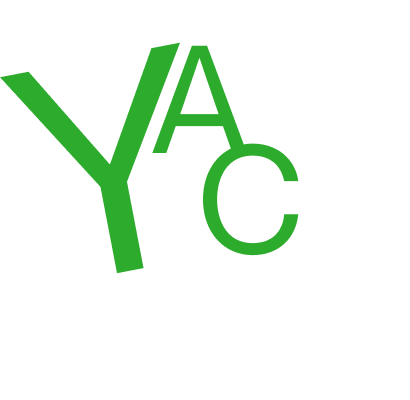1 Minute 48 Seconds
Text by David McLeavy
-
Published in September 2020
-
How long do you spend reading interviews on here? How long will you spend reading this article? Well, according to Google Analytics, since January 1st this year, the average time spent on each interview page is 1 minute 48 seconds. I don’t know about you, but I would consider myself a 10th dan in the art of reading if I were able to work my way through any of the interviews on this site in that time, especially as they usually range between 2500 – 3500 words each. I wonder what the average time spent on this article will be as it’s around 800 words long.
This isn’t a point of criticism; it’s actually quite the opposite. I know that YAC functions in different ways for different people. For some it’s about platforming the work of exciting artists and writers through the fact that they now have something online which further contextualises their work, as well as YAC offering a space to promote their work through Instagram, Facebook and Twitter. It’s also a mechanism to link up artist and writers to have meaningful experiences where they can share interests, stories and experiences through the act of interviewing. But more recently, due to being sat in front of a laptop for longer periods, I have been thinking about the format of the interviews and the website in general. Are long form interviews the best way to engage people, especially when the overall data suggests otherwise?
Well, to begin with, the data can be somewhat misleading. Looking at the average duration per page on the site, doesn’t really account for people who do take the time to read the interviews in detail, as often casual browsers outweigh these instances, and some people simply want to scan to see images, find links and get a brief take on someone’s work.
When you look at the data for each site visit, you start to see some of the useful variations in time spent on the site. For every 5 people spending less than a minute on the site, there is 1 person who seems to be taking their time, picking through the detail of the interview and becoming absorbed in the exchange of words. Therefore looking at the ‘mean’ value of time spent reading, may not be the most useful metric when taken in total isolation. It’s also interesting to track the amount of visitors to particular interviews against the changing public profile of each artist. For example, if an artist who has featured on the site in the past gets nominated for an award, presents their work at a large public institution or accepts an exciting new commission, then often visit’s to their interview increase too. The interviews act as a time capsule, ready to be opened by an inquisitive explorer, or someone with a commissioning budget at hand.
Personally, I love taking the time to read all of the interviews. Part of the gig of editing the site, is that it’s my obligation to do so, but beyond my duty, it is a real pleasure to learn more about practices, perspectives and people on an almost weekly basis. There are so many artists and writers whose work I previously hadn’t come across that have sparked something deep within me that has lead to me continuing to follow their work and in some cases led me to work with them on other projects.
So what is it that I am really trying to say? Well, I think it’s important to explore new ways of conducting interviews, testing out recorded interviews, like our recent ones with Short Supply and The School of the Damned Class of 2019, and looking into making short films, but to also maintain a focus on the long read. I know that in a lot of circles, something around 3000 words isn’t really considered a long read, but compared with the diminishing time that we all spend reading things online, it requires a different degree of attention.
So right now at least, I am in praise of the long read. People may not have the time to read everything now, but they might do at some point in the future. A newly published conversation may not resonate with you now, but it might do in the future. It’s there when you need it, and you can spend as long reading it as you want, be that 10 minutes, 30 minutes, 1 hour…or for some it may only be 1 minute 48 seconds.
But I am keen to know your thoughts…where do you sit on this subject? Drop me a line :)
-
If you like this why not read our interview with Jack Burton
-
© YAC | Young Artists in Conversation ALL RIGHTS RESERVED
